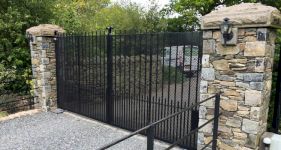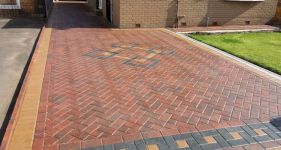New Driveway Cost
- The average cost of a new driveway is £2,500 to £8,000.
- It will take about 2 to 3 days to complete.
- Driveway costs by size and surface material.
- Simple calculator for you to quickly get an estimate.
- Estimated timelines for different projects.
- Planning permission and building regulations for driveways.
Wondering about the cost of a new driveway?
Whether you're replacing an existing drive or turning a front garden into parking, it's a smart move to find out what you're likely to pay.
In this guide, we break down typical driveway costs in 2026, what impacts them, and how to plan ahead with confidence.
Many homeowners get quotes early, as it's the easiest way to get a clearer idea of what's involved and realistic for their home and budget. You don't need to be ready to start work to explore your options.
Get free quotes from driveway companies near you using MyJobQuote. It's quick, easy, and there's no obligation to go ahead.
You'll find our full guide to driveway costs below.
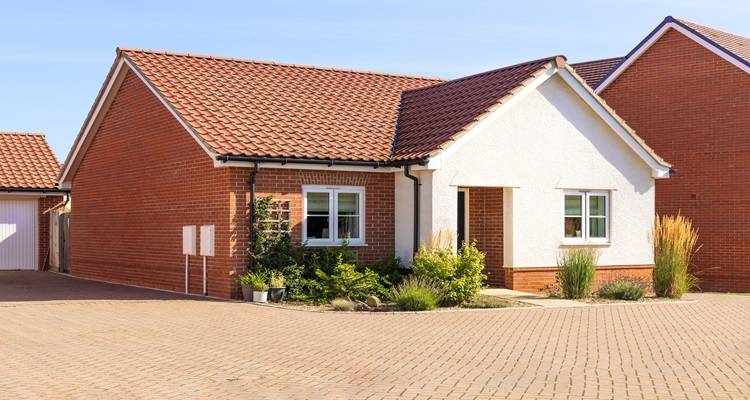
£6,600
Table of Contents
- How Much is a New Driveway?
- New Driveway Prices
- Cost of New Driveway Materials
- Labour Cost of a New Driveway & Timescales
- Factors That Impact New Driveway Costs
- Professional Installation vs DIY
- Building Regulations and Planning Permission
- Driveway Maintenance Costs
- Type of Driveways
- Checklist: Hiring Contractors for a New Driveway
- FAQs
New Driveway Cost Calculator
How Much is a New Driveway?
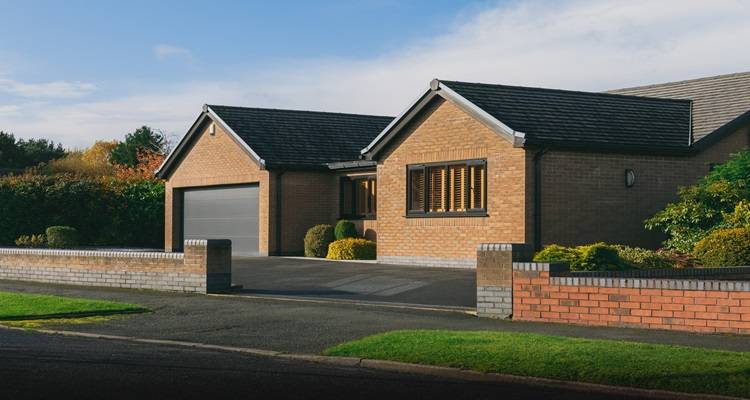
A driveway is a small area that acts as an entryway from the main road into the front of a property so that household members and visitors can park their cars on the property. This may come in the form of a paved area or ‘short road’, depending on your definition.
There are many driveway ideas you may want to focus your attention on, so it’s worth considering a wide range of aspects before deciding what driveway is right for you and your home. But, to start things off, how much does a new driveway cost?
Beginning with tarmac drives, for a 30m² installation, it will likely cost around £1,300 to £3,200, with prices reaching £2,500 to £5,000 for an average 60m² driveway or £4,000 to £7,500 for a 90m² driveway made of tarmac.
Next, we have concrete. In this case, a 30m² driveway will probably set you back about £2,500 to £4,000, or £5,500 to £8,000 if you’re looking for a 60m² concrete drive or £8,300 to £12,000 for a 90m² concrete driveway.
If you’d rather have a gravel driveway, you can expect to pay somewhere in the region of £1,000 to £2,500 for a 30m² driveway, £2,100 to £4,800 for a 60m² driveway or £3,200 to £7,100 for a 90m² driveway.
As for resin drives, these tend to cost approximately £1,200 to £2,000 for a 30m² drive, £2,500 to £5,000 for a 60m² drive, £4,500 to £7,000 for a 90m² drive.
Lastly, those interested in a block paving drive, will need to pay about £1,200 to £4,000 for a 30m² driveway, £2,500 to £8,000 for a 60m² driveway or £3,800 to £12,000 if you’d like a 90m² block paving driveway.
New Driveway Prices
As you can tell, the size and type of driveway are key cost factors. Of course, there are other factors to consider, but we’ll look at those later. First, here is a summary of the prices mentioned above.
Driveway Cost By Size and Type
| Type of Driveway | Size of Driveway | Average Cost |
|---|---|---|
| Tarmac | 30m² | £1,300 to £3,200 |
| 60m² | £2,500 to £5,000 | |
| 90m² | £4,000 to £7,500 | |
| Concrete | 30m² | £2,500 to £4,000 |
| 60m² | £5,500 to £8,000 | |
| 90m² | £8,300 to £12,000 | |
| Gravel | 30m² | £1,000 to £2,500 |
| 60m² | £2,100 to £4,800 | |
| 90m² | £3,200 to £7,100 | |
| Resin | 30m² | £1,200 to £2,000 |
| 60m² | £2,500 to £5,000 | |
| 90m² | £4,500 to £7,000 | |
| Block Paving | 30m² | £1,200 to £4,000 |
| 60m² | £2,500 to £8,000 | |
| 90m² | £3,800 to £12,000 |
Cost of New Driveway Materials
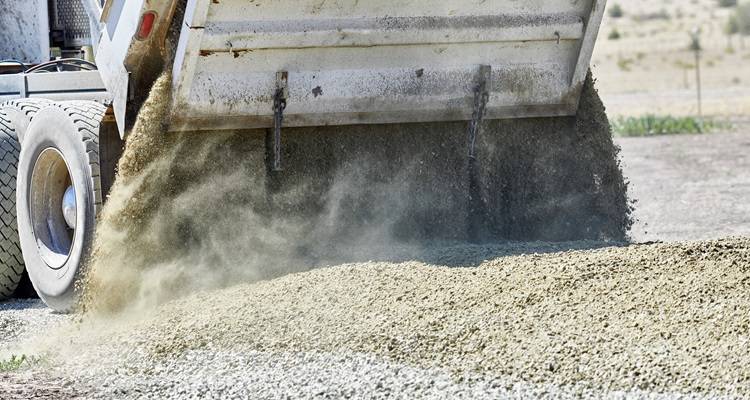
The overall cost of having a new driveway installed will comprise primarily of the price of labour and supply only costs.
Let's take a closer look at the supply cost of a new driveway:
| Driveway Type | Supply Cost |
|---|---|
| Tarmac | £45 – £65 per m² |
| Concrete | £60 – £90 per m² |
| Gravel | £30 – £90 per m² |
| Resin | £50 – £85 per m² |
| Block Paving | £85 – £125 per m² |
Labour Cost of a New Driveway & Timescales
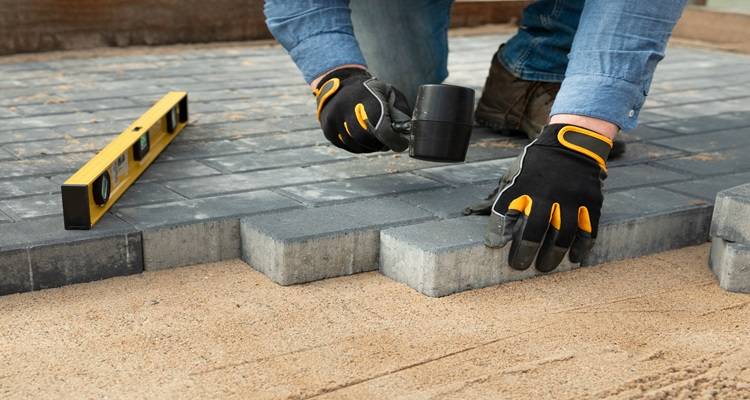
Along with the cost of materials, the labour price is the other primary cost element involved in a new driveway installation.
On average, a driveway installation team is likely to charge between £150 and £200 per day. Of course, the total labour price will then depend on how long the project takes.
In general, a small driveway installation will probably last for 1-2 days, with the average timeframe reaching 2-3 days for a mid-sized drive or between four days and a week in the case of a large drive.
These aforementioned timeframes apply well to tarmac, concrete, gravel and blocking paving drives. However, resin drives generally take quite a bit longer (e.g. a large resin drive could take up to three weeks to install). Ultimately, the cost of labour may fall somewhere between £150 and £1,400 for most materials or around £450 to £4,200 in the case of building a resin driveway.
The bulk of the work will consist of the installation process itself; however, a small percentage of the project’s timeframe will be dedicated to preparation and some to the clean-up or/waste disposal process.
Both the price of labour and timescale can be influenced by a range of factors including the size and type of driveway being built and the state of the work area. The job may also be slowed down by poor weather conditions although you probably won’t get billed for days where the project is on pause.
Factors That Impact New Driveway Costs
As discussed, there are a range of factors that can influence the total cost of having a new driveway installed. Let’s take a look at some of the most notable cost factors in some detail.
Driveway Size and Layout
Both the size and layout of a driveway can significantly influence the cost. While it’s fairly obvious that a larger driveway will likely take longer to complete and thus cost more (both in terms of labour and supply costs), the complexity of the design is important, too.
A relatively complex design may require more materials but it may also take longer to work on and in some cases both of these scenarios can apply. Whatever the case, a more complex design generally means a more expensive project.
Type of Material
As you already know, some materials cost more than others with regards to a driveway instalment. While resin drives are generally priced at £50 to £85 per m² for supply only costs, block paving drives may have a material cost of up to £125 per m² or even more in some cases.
Site Preparation and Grading
It is essential that the site is well-prepared and graded properly to ensure a high-quality driveway and one that can last.
While all of this is important, naturally, how difficult and time-consuming the site preparation and grading proves to be can impact the total cost. Factors such as soil type and slope can, in turn, influence the total price of having your driveway installed to a certain degree.
Additional Features
If you’d like to have extra features included alongside the installation, these can naturally add to your total bill.
You may, to give some examples, be considering decorative elements, borders or/and edging for a more aesthetically pleasing driveway. Such features are often customisable too which can make them that bit more expensive. However, they may indeed prove a worthy investment.
Removal of Existing Driveway
If you have an existing driveway in some form or another, the cost of having its contents/materials recycled or disposed of can also incur fees.
Of course, even if you don’t have a current driveway, some other materials or land may need removing in some form or another, which could also add to the project’s total cost.
Installing Outdoor Lighting
Not only will adding external lights along your driveway help you see what you're doing after dark, but they can also work as a deterrent against any unwanted guests and potential intruders.
The average cost of installing outdoor lighting is around £200, however in reality you can pay much less for something basic that can be installed by yourself. However, if you wish to upgrade to a complete security system it's best to seek advice from a professional.
Installing a Driveway Gate
Another security option or one that can provide an extra layer of privacy is installing a driveway gate.
If you don't already have one fitted, then you will need to consider the likes of pillars for them to be attached to into your cost. Although the driveway gate itself can cost between £500 and £2,300, depending on the quality, design and materials used.
Dropping a Kerb
This is something to consider if you're laying a completely new driveway, as you may not already have seamless access to the road.
If this is the case, or you wish to amend your existing driveway, then the cost of dropping a kerb is around £800 to £1,200 as it also requires a certificate of approval from your local council.
Install a Soakaway Drainage System
One of the important factors to consider with any driveway cost is that of an efficient drainage system. After all, while installing at the correct angle to drain rain water is one thing, there are additional steps you can also take.
As such, to install a soakaway drain will cost around £700 to £1,100 which can vary depending on the type of system you choose.
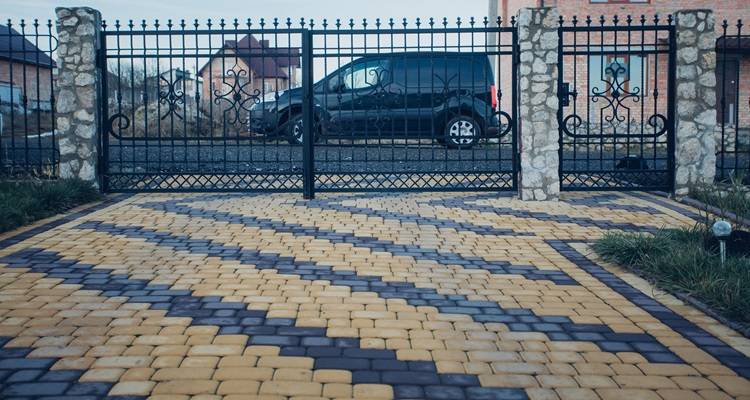
Professional Installation vs DIY
Some driveway designs and installation may not be suitable for DIY due to the complexity and experience required. If you’re unsure, then consult with a professional to avoid any expensive mistakes.
While most people will generally have their driveway installed by a professional company, you may still be considering taking a DIY approach.
One of the main benefits of DIY is it could save you somewhere between £150 and £1,400 in labour fees. Although, you may need to invest in buying or renting specialist equipment, only to learn how to use it for a one-off project.
As such, you should only proceed with a DIY installation if you’re fully confident in your ability to complete the job safely and to a high enough standard.
Among the key safety points to take into account for a DIY approach are:
- Protective Footwear – Wear steel toe cap Wellington boots to prevent injury from heavy materials, which can cause serious damage if dropped on your feet.
- Hand Protection – Use rubberised protective gloves to shield your hands from direct contact with potentially harmful substances.
- Protection for Eyes and Lungs – Always wear suitable eye protection and a particulate dust mask that complies with EN143 or EN149 standards, especially when mixing or handling dry materials.
- Clothing and Skin Protection – Use full work overalls to protect exposed skin. If you have any cuts or abrasions, contact with certain materials could lead to infection or skin irritation.
- Site Safety – Keep children, pets, and other household members away from the work area at all times. They are especially vulnerable to hazards like airborne particles or active machinery.
Additional safety requirements may apply depending on the specific nature of the work. As an example, it's important to proceed with caution when handling heavy materials or operating equipment such as a cement mixer.
If you're unsure about your skills, safety knowledge or expertise, it's best to hire professionals as otherwise, you risk wasting your time and effort (not to mention the cost!). Experienced tradespeople are more likely to deliver a durable, high-quality result that comes with a guarantee for their work.
Building Regulations and Planning Permission
In most cases, planning permission isn't required to have a driveway installed. However, if the surface area covered by the new driveway exceeds five square metres and is made of materials that don't allow for a natural drainage area, planning permission must be obtained.
Other planning permission rules may apply if you're having additional work carried out alongside the driveway construction. It’s always best to contact your local council to confirm whether your specific project requires permission, particularly when designs involve work such as installing a drop kerb.
Building regulations also apply to driveway installations to ensure safety and proper drainage. Any reputable driveway installer or company will be familiar with these requirements and will ensure compliance.
Driveway Maintenance Costs
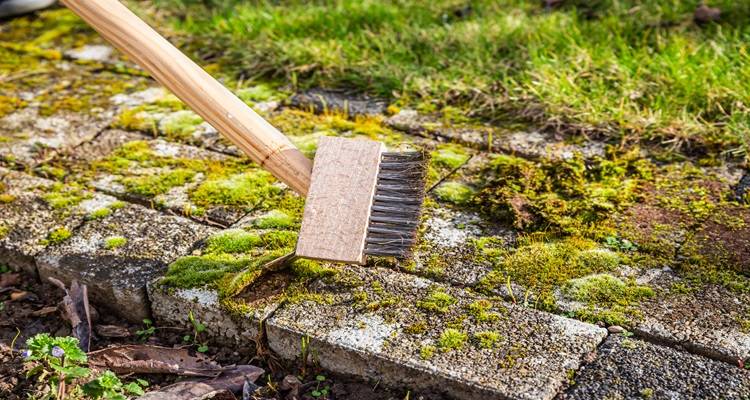
It’s important to have your driveway maintained every so often. How frequently will depend on the type of driveway and how soon it seems necessary based on the state of the drive. If in doubt, consult with a professional.
Since maintenance is required, the cost of periodic sealing (for relevant driveways) and repairs should be taken into account when considering the long-term cost of having a driveway.
Here are some average maintenance costs for different driveways and jobs:
| Job Description | Average Cost (incl. Labour and Supply Costs) |
|---|---|
| Clean and Seal a Tarmac Driveway | £300 to £900 |
| Clean and Seal a Concrete Driveway | £280 to £900 |
| Re-Grade or Replenish Gravel Driveway | £200 to £2,700 |
| Simple Cleaning of Gravel Driveway | £50 to £200 |
| Clean a Resin Driveway | £40 to £130 |
| Clean a Block Paving Driveway | £20 to £120 |
| Remove Weeds from Any Driveway | £75 to £120 |
To secure specific quotes, you can contact a local driveway installation and maintenance company to get an idea of how much specific maintenance work for your driveway might cost in the future. Obviously, prices can vary over time, but it should give you a sense of what you can expect to pay.
When having your drive installed, you may also want to inquire about how often maintenance should be needed for your specific drive so that you can budget ahead. Obviously, maintenance may be required more often (or, with a bit of luck, less often) than expected.
Ultimately, you should have your driveway repaired or maintained when needed based on the level of damage, issues, or worn-down nature of the driveway. Again, if in doubt, you can always chat with a professional.
Type of Driveways
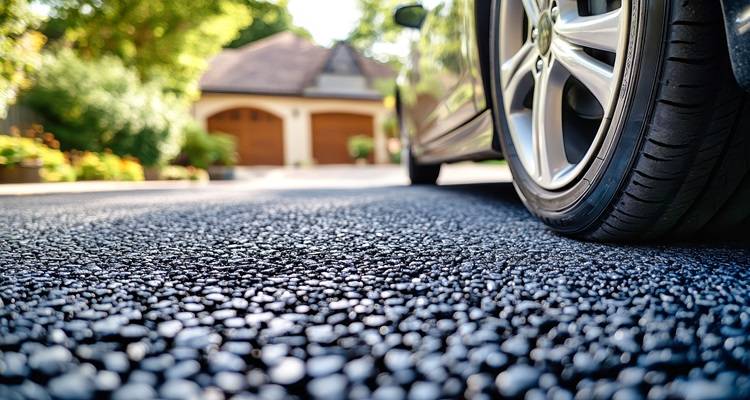
As already discussed, there are various types of driveways to choose from. Let’s explore some of the best options in more detail.
Tarmac Driveway Cost
Starting with tarmac driveways, the average tarmac driveway cost is approximately £45 to £65 per m² in supply-only costs, making it a relatively inexpensive option.
Along with being fairly cost-effective, tarmac as a material option for a driveway dries fairly fast and is easy to install. In fact, it should only take one to two days to be installed.
Other upsides include that it is easy to maintain (although you should review it every 5 years on average to determine if it needs any repair work), durable and long-lasting and it’s known for being weather-resistant too. As for its weather resistance, tarmac drives repel water extremely well while also being one of the better options for dealing with cold weather.
As for the downsides, tarmac drives can be susceptible to weed growth as well as issues with algae and moss, and while designed to deal well with heat, tarmac driveways are vulnerable to UV light damage over time.
Another potential concern is that oils, petrol and diesel can all damage tarmac drives. This can happen because the aforementioned liquids cause the tarmac’s binder to weaken, enabling cracks to appear. So, as you can tell, there are a range of pros and cons to consider when it comes to tarmac drives, and, of course, this is true for all types of driveways.
Concrete Driveway Cost
Next, we have concrete drives. The average cost of materials in this case is likely to end up between £60 and £90 per m². This makes concrete relatively expensive in many cases.
As for the benefits, concrete drives can prove a particularly smart investment since they are particularly durable, often lasting for 25-50 years. Along with being long-lasting, they are known for being durable.
Furthermore, concrete drives are especially strong and may add a greater curb appeal and more value to your home than many other driveway options.
With all that said, as touched on, concrete drives are relatively costly. Another disadvantage worth noting is that concrete drives can be more vulnerable to damage from cold weather than most types of driveways. Naturally, this means concrete drives can end up requiring more maintenance more often than other options.
Also, concrete driveways cannot be simply topped up like other types. Instead, they must be replaced entirely when they are beyond economic repair.
Gravel Driveway Cost
Moving on to gravel driveways, the supply-only costs in this case will likely end up somewhere in the region of £30 to £90 per m².
While the price of a gravel drive can range quite widely, with some luck you can find a company in your area able to create a gravel drive for a relatively low price as the supply only price can end up more in the region of £30 to £50 per m² fairly often, which would make it particularly low-costing when compared with most other types of driveways.
The key upsides of gravel drives include its aesthetic value offered by its natural appearance, how permeable it is, the fact it’s easy to top up when needed and it's one of the more DIY-friendly options for those with the right skills, knowledge and specific safety understanding.
Also, unlike with other types of driveways, you don’t need to wait for it to settle once it’s been installed and you can therefore use it once the project is complete and the gravel drive is 100% ready to use.
On the other hand, gravel driveways are difficult to clean, they can be susceptible to weed growth and gaps and holes may appear. It has a loose structure and is prone to becoming messy too.
Beyond that, in snowy conditions, removing snow can be tricky as it’s easy, perhaps inevitable, to accidentally remove gravel in the process. Therefore, you may simply want to add salt to the snow rather than physically removing it yourself. If this issue arises, hire a professional. Also, gravel drives are often less popular from an aesthetic perspective.
Resin Driveway Cost
Another popular type of driveway worth considering is a resin drive. As mentioned earlier, the average resin driveway cost (supply-only cost) is about £50 to £85 per m². This is essentially a mid-range choice from a pricing point of view.
Resin driveways have quite a few benefits of their own. For one, they are super durable. A resin drive will be very hard-wearing and should be well-suited to deal with temperature extremes, UV rays and even large weights (e.g. a relatively heavy car).
What’s more, resin drives often last for 20-25 years, and as an added bonus, they are relatively low-maintenance. This type of driveway is also super versatile, easy on the eye and fairly eco-friendly.
However, resin drives are relatively difficult to repair, clean or/and maintain. Also, resin may prove a health hazard due to its harmful toxins and chemicals. As a result, you shouldn’t spend time hanging out on your drive, and it’s important to keep children and pets away from the drive other than when walking along it to leave or exit the property swiftly.
Another disadvantage you should know is that resin drives can see their colour fade with time (if they lack UV-resistant capabilities), and they are susceptible to the growth of moss.
Block Paving Cost
Last but not least, block paving is an expensive choice with a material cost of approximately £85 to £125 per m². Pricing can vary significantly depending on what type of block paving you wish to opt for.
To explain in more detail, in supply-only costs, concrete blocks cost about £20 to £50 per m², brick blocks are priced at around £30 to £65 per m², whereas pricing ends up between £65 and £95 per m² on average in the case of stone blocks. Lastly, composite blocks should cost around £90 to £125 per m².
Given that there are several types of block paving, the pros and cons naturally vary depending on which specific material you’d like. However, in general the upsides of a block paving driveways include the wide range of designs and colours available, their capacity to visually enhance the front of your home, its low-maintenance nature and how eco-friendly it is.
As for the downsides, block paving may simply not be everyone’s cup of tea, depending on what sort of driveway look they’d prefer. And, of course, as discussed earlier, block paving generally takes quite a bit longer to install than other types of driveways.
Checklist: Hiring Contractors for a New Driveway
When looking for a driveway installation company or professional, it’s important that you take time to consider who might be right for the job by requesting at least 3 separate quotes - this is where MyJobQuote can help find you the best tradesmen, that are local to your area.
As well as comparing prices, consider the following points to help you hire a reliable and experienced professional:
- Do they have experience installing driveways? This helps ensure the job is done properly and to the standards you'd expect.
- Can they provide a portfolio or similar projects? Viewing previous work gives you confidence in their style and quality.
- Are they accredited or part of a trade association? Memberships and certifications show they meet industry standards.
- Do they hold relevant qualifications? (e.g. NVQ, City & Guilds) Relevant training shows they’re professionally qualified to do the job.
- Have you read their reviews or testimonials? Positive feedback is a good sign of reliability and customer satisfaction.
- Do they offer a written quote or contract?A clear contract helps avoid misunderstandings and ensures transparency.
- Is their communication professional and responsive? Good communication early on often reflects how they’ll handle the full project.
FAQs
What is the cheapest driveway material?
Gravel has a wide-ranging material cost estimate of between £30 and £90 per m², meaning that you may find a company that can build gravel drives for less than a tarmac drive. Obviously, when opting for a relatively cheap driveway, be sure that you are not going to miss out on good quality.
How long do driveways last?
Naturally, the durability and longevity of a given driveway will depend on factors like the material used. Concrete drives, for instance, are arguably the longest-lasting on average, with a general life expectancy of around 25 to 30 years.
What are the most permeable types of driveways?
Can I build a driveway myself?
What is the best type of driveway from an aesthetic point of view?
This is true in part because of how versatile block paving driveways are, thus offering a lot of potential to find a design you really like. However, block paving is also suitable for greater customisation and more suitable if you want to work with different colours and designs in ways that generally aren’t possible with other types of driveways.






